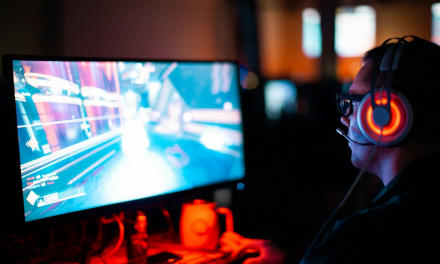When gaming was still in its infancy, the idea of a leak was a nightmare scenario.
Yet, here we are in 2025, and the culture around leaks has shifted. Leaks are no longer just incidental. Nowadays, they are often a marketing strategy that helps the developer identify what the fandom appears to be most excited about, and sometimes even guide creative direction in the confines of meetings before the official release date of a project.
What was once an unpredictable threat has now become a predictable tool. Companies have learned that players love the chase. When an unannounced sequel suddenly appears in a retailer’s internal database or a few seconds of gameplay “accidentally” surface online, the community reacts faster than any press release could achieve. These moments create waves of speculation across Reddit, X, and YouTube, giving studios a pulse on public sentiment long before they commit to a full-scale campaign.
A perfect example came from Ubisoft’s handling of the Assassin’s Creed Mirage leak. What seemed like a slip from a retailer actually preceded an official announcement just a week later. Fans had already dissected the artwork, guessed the setting, and generated free publicity worth millions in engagement metrics. It looked like a mistake, but to many marketing analysts, it was a textbook example of controlled curiosity.
Controlled Chaos and the Hype Economy
Behind the scenes, these “leaks” operate in a gray zone between strategy and spontaneity. Marketing teams know that fans crave authenticity, and a leak feels more real than a polished trailer. Studios now orchestrate information drops through anonymous sources, influencer whispers, or subtle file name references within patches. The illusion of discovery creates far more excitement than a scheduled press release ever could.
Take Rockstar Games, for instance. Every time a supposed Grand Theft Auto VI leak appears, the internet catches fire. The developers rarely comment directly, allowing speculation to snowball and dominate gaming news for days. When the official trailer finally landed, it broke YouTube records within hours. Some marketing professionals argue that Rockstar’s silence is not accidental at all but a deliberate part of its hype ecosystem.
This type of marketing psychology is, perhaps oddly, not limited to gaming. As noted before, this idea can be seen in entertainment as well, and even in digital leisure. This approach exists in online casinos that offer games such as slots, poker or blackjack, whereby marketing is aimed at hyping exciting new game releases or indicating an exciting jackpot is coming soon without any official confirmation.
The unknown is fun and stimulates curiosity to discuss in a forum like environment just as it does for a fanbase waiting for the next installment of a series, either in an RPG format or shooter. The strategy here is persuading the audience that they’re an insider and participant streaming, instead of a spectator.
When Leaks Go Too Far
Certainly, not every leakage comes as a potential boost for a studio. If the leak is really early, or the sensitive data of a studio or any other party is included in a leak, it could turn into a negative situation, like when the GTA VI hack that resulted in some earlier builds of the game being leaked on the internet.
This pressure has forced studios to find a careful compromise. They are careful to generate excitement without losing all the lead time. Many of them have learned how to respond to small leaks, while maintaining silence when there are larger leaks. This creates a paradox: As companies become more secretive, fans look harder for clues, and as there are leaks, they drive engagement further up. What has followed is a symbiotic relationship where developers and communities maintain each other’s curiosity.
Companies such as Nintendo are taking the opposite stance, taking action against any early disclosure of game information. Their rigorous legal action against insiders and data miners stems from their belief that we need to preserve an element of surprise in respect to new game releases. Unfortunately, the more Nintendo tries to prevent leaks the more attention they seem to attract, showing how entrenched these practices are embedded into the culture of modern gaming.
The Future of “Leaks” as a Marketing Tool
As the gaming industry progresses, so will the leak. The next wave of marketing teams may look to AI-driven data analysis to gauge how each leak impacts the community sentiment, engagement, and eventual sales. More common could be a controlled leak as part of a marketing strategy, formed as content is being devoted with the same precision as advancing influencer partnerships or teaser trailers.
The way the community perceives will continue to also change. As the world is inundated with chatter and information fans are becoming increasingly aware that not everything that appears to be “accidental” is quite so spontaneous. However, it is human nature to want to find out or experience something that is off limits. That tension between secrecy and curiosity keeps gaming culture alive and unpredictable.











![[Rumor] GTA 6 to be digital-only at launch… to avoid story spoilers](https://vgleaks.com/wp-content/uploads/2024/03/gta-6-150x150.jpg)
![[Rumor] Resident Evil: Code Veronica remake could be announced this year and launch in 2027](https://vgleaks.com/wp-content/uploads/2026/01/resident-evil-code-veronica-150x150.jpg)
